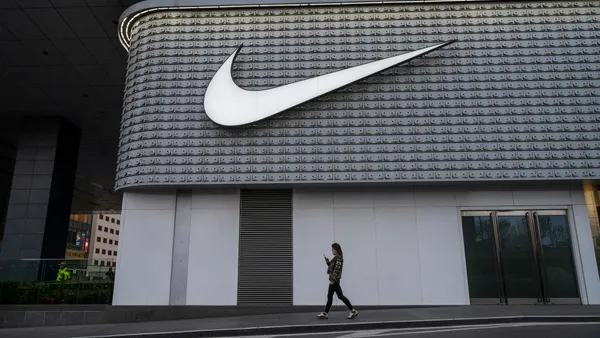Dive Brief:
-
Toy maker Mattel is facing a class action lawsuit in the United States District Court for the Central District of California on behalf of shareholders alleging that the company "made materially false and/or misleading statements, as well as failed to disclose material adverse facts about the Company's business, operations, and prospects," according to a March 6 court filing.
-
Specifically, the suit claims that the company failed to disclose to investors that demand for Barbie and Hot Wheels and other products was declining, that Mattel had an excess of inventory, and that, therefore, its "positive statements about the Company's business, operations, and prospects, were materially misleading and/or lacked a reasonable basis," according to the documents.
-
A Mattel spokesperson told Retail Dive in an email concerning the action: "We have a long-standing policy of not commenting on litigation matters." Defendants named in the suit include Mattel itself, CEO Ynon Kreiz and CFO Joseph Euteneuer. The plaintiffs are seeking certification of a class action and a jury trial and compensatory damages in an amount determined by trial (along with attorney and other fees).
Dive Insight:
Mattel, like fellow toy manufacturer Hasbro, has struggled to find the ideal mix of digital toys, traditional toys and entertainment in an era when "child's play" is often virtual. It didn't help when they also lost their biggest retail sales channel with the collapse of Toys R Us.
As noted in the lawsuit, Barbie and Hot Wheels, along with Fisher-Price and American Girl, are among Mattel's power brands, and have consistently shown to be doing their part to lift sales. In the most recent quarter, for example, the company reported that Barbie gross sales rose 12% year over year, the doll's fifth-straight quarter of growth and its highest full-year gross sales in the last five years, Mattel said. Its Hot Wheels brand's fourth quarter gross sales, meanwhile, rose 9% and reached its own highest full-year gross sales in its history.
Whether or not the lawsuit filed last week is found to have any merit, the Barbie brand could get a boost from an upcoming movie, a live-action production in partnership with Warner Brothers with actor Margot Robbie. The release demonstrates the company's faith in the sometimes controversial doll.
That could stoke demand, even at a time of renewed strength in women's empowerment among all generations. As Barbie celebrates her 60th birthday this year, the company is emphasizing that the toy was invented by a woman who was inspired by her young daughter playing with paper dolls. Mattel Chief Brands Officer Richard Dickson, speaking to a Shoptalk audience last week, went so far as to say that the iconic doll has evolved to represent feminist ideals, girl power, and a diversity of ethnicity and interests. In fact, as the #MeToo era has taken hold, he said, "We feel like the world is catching up to us."
But Dickson also seemed to acknowledge that Barbie remains a lightning rod, as she has been for decades, especially regarding her role in promoting an unhealthy body ideal, at least through past iterations of her shape. "Those who love us and those who hate us are involved in the conversation," he said.













